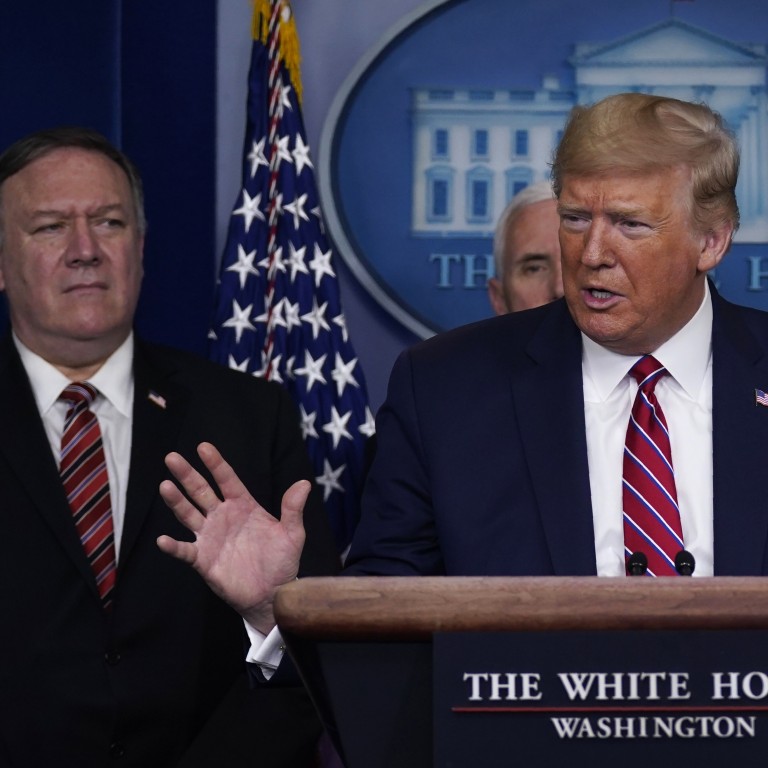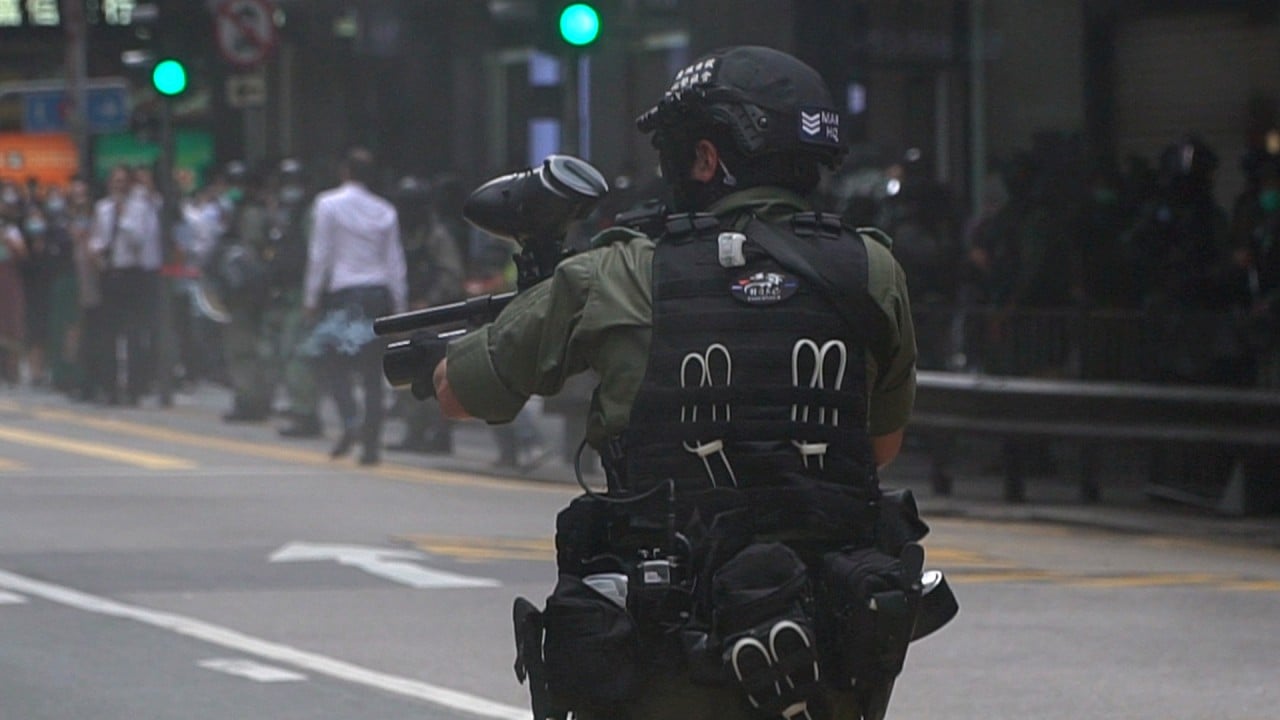
What to expect now US deems Hong Kong no longer autonomous
- US official says it will be up to the White House how it responds to Secretary of State Mike Pompeo’s assessment
- ‘A lot of’ options are being considered. ‘It can be personnel, it can be sanctions’
“It’s a one-two action,” David Stilwell, assistant secretary of the Bureau of East Asian and Pacific Affairs at the state department said on Wednesday evening.
“One being the state department making the assessment that Hong Kong no longer enjoys autonomy,” he told reporters, referring to US Secretary of State Mike Pompeo’s statement earlier in the day.
“And then, [the second action will be] the determination by the White House as to how we’re going to respond,” he said.
The state department did not specify when that decision might be taken.
Hong Kong is no longer autonomous from China, US determines
“A lot of” options were being considered, including personnel and sanctions “as determined in the United States-Hong Kong Policy Act of 1992 and in the Hong Kong Human Rights and Democracy Act [of 2019],” Stilwell said.
A revocation of Hong Kong’s special trading status with the US will put an end to the preferential economic and trade treatment the city has enjoyed and which has, at least partly, contributed to making it the financial and business hub in the region.

03:06
Hong Kong police fire pepper rounds at protesters opposing national anthem law
Some analysts and members of the business community, following the state department’s assessment, have voiced concerns that a status change would inflict more pain on Hong Kong and its people than on Beijing.
“Today’s action is best understood as another turn of the screw,” said Terry Haines, an independent political analyst and former Congressional staffer. “It is a strong signal of US government displeasure.”
But given that this was only the first step and did not necessarily lead to US sanctions or other actions against Hong Kong, there was an opportunity to lessen the tension, he said.
“Expect Congress to help Trump pressure China on Hong Kong autonomy, but not to force Trump’s hand or require sanctions or other actions,” he said.
Stilwell acknowledged that “there is going to be an impact in some way both for the US and for the PRC [People’s Republic of China]” if the change was implemented.
“The business community, like everyone else, is reading the writing on the wall,” he said, adding that China’s increasingly aggressive assertion of political power on Hong Kong had to be stopped.
China vows to hit back at US over any action on Hong Kong security law
“The actions will be as targeted as possible. I do firmly believe that there are things we can do that do not necessarily directly impact the folks who are out there working hard to maintain the democratic processes,” Stilwell said, without elaborating on the specifics.
“We’re going to do this in a smart way, in a way that takes care of the things that people care about, at the same time letting Beijing know that what they're doing contravenes what they agreed to do back in 1997,” he said.
Pompeo said in his statement on Wednesday that “no reasonable person can assert today that Hong Kong maintains a high degree of autonomy from China, given facts on the ground.”
His assessment came a day before Beijing could pass the national security law tailor-made for Hong Kong.
Additional reporting by Mark Magnier

